Skip to product grid
-
-$70.00
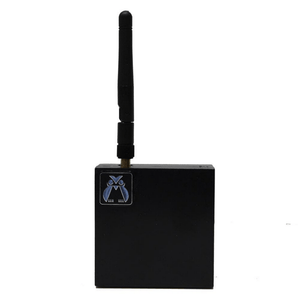 Vendor:Rainwise
Vendor:Rainwise2.4 GHz Long Range Receiver - RainWise Weather Station
Regular price $129.99Regular price$199.99-$70.00 Sale price $129.99 -
Sold out
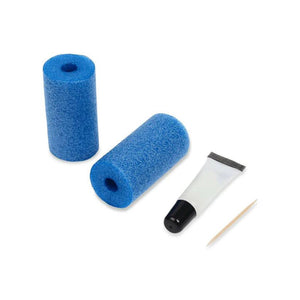 Vendor:World's Coolest Rain Guage
Vendor:World's Coolest Rain Guage3" Foam Repair Kit For Floating World's Coolest Rain Gauge
Regular price $15.99Regular price$29.99-$14.00 Sale price $15.99 -
-$60.00
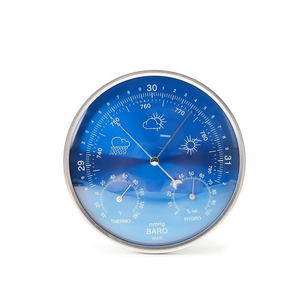
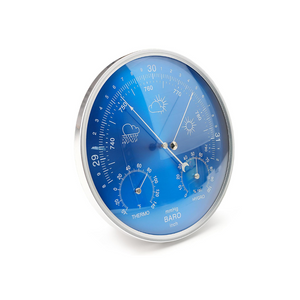 Vendor:Weathershack
Vendor:Weathershack3-in-1 All-Season Wall Hanging Thermometer, Barometer, Hygrometer |
Regular price $69.99Regular price$129.99-$60.00 Sale price $69.99 -
Sold out
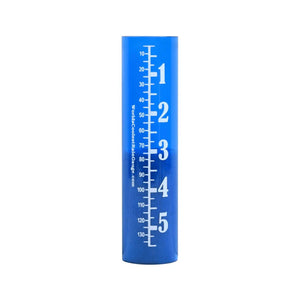
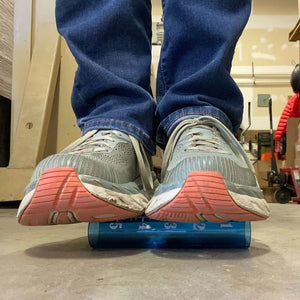 Vendor:World's Coolest Rain Guage
Vendor:World's Coolest Rain Guage6" Replacement Rain Gauge Measurement Tube For World's Coolest Rain Gauge
Regular price $29.99Regular price$59.99-$30.00 Sale price $29.99 -
-$52.00
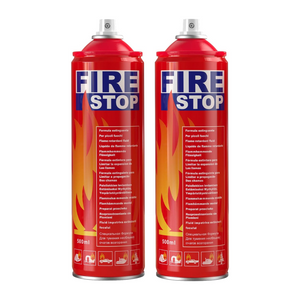
 Vendor:Weathershack
Vendor:Weathershack8-in-1 Fire Extinguishing Aerosol Spray which Prevents Reignition for Home (mounting bracket included) - Portable Small A, B, C, K
Regular price From $52.99Regular price$104.99-$52.00 Sale price From $52.99 -
-$50.00
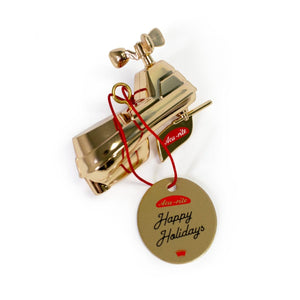
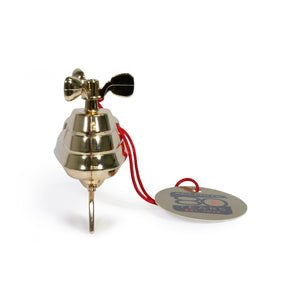 Vendor:AcuRite
Vendor:AcuRite80th Anniversary AcuRite Iris Miniature Metallic Gold Ornament
Regular price $49.00Regular price$99.00-$50.00 Sale price $49.00 -
-$100.00
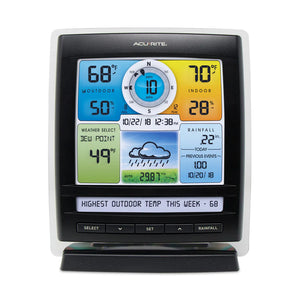
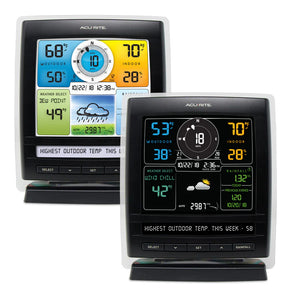 Vendor:Acurite
Vendor:AcuriteAcurite 5 in 1 Iris Weather Sensor
Regular price $99.99Regular price$199.99-$100.00 Sale price $99.99 -
-$200.00
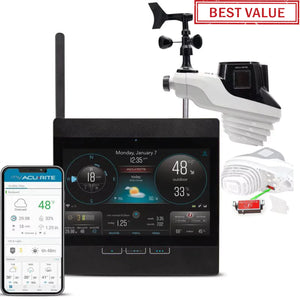
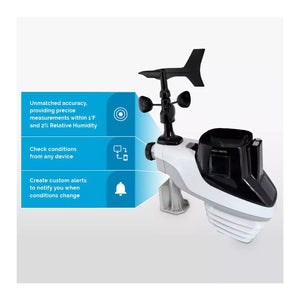 Vendor:AcuRite
Vendor:AcuRiteAcuRite Atlas Weather Station with Direct-to-Wi-Fi Display and Lightning Detection
Regular price $299.99Regular price$499.99-$200.00 Sale price $299.99 -
-$28.00
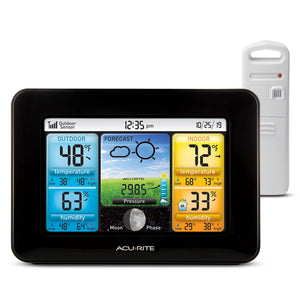
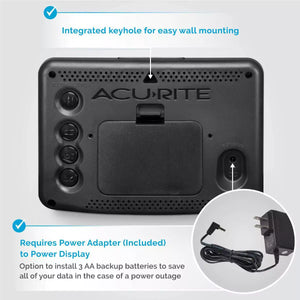 Vendor:AcuRite
Vendor:AcuRiteAcuRite Color Weather Station with Moon Phase
Regular price $71.99Regular price$99.99-$28.00 Sale price $71.99 -
-$118.00
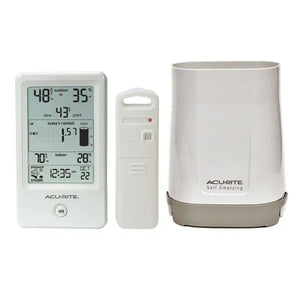
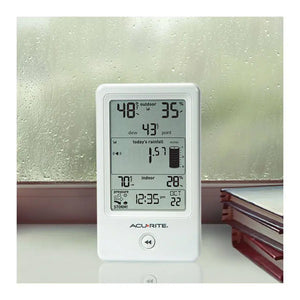 Vendor:AcuRite
Vendor:AcuRiteAcurite Digital Rain Gauge with Indoor/Outdoor Temperature and Storm Alert
Regular price $81.99Regular price$199.99-$118.00 Sale price $81.99 -
-$69.00
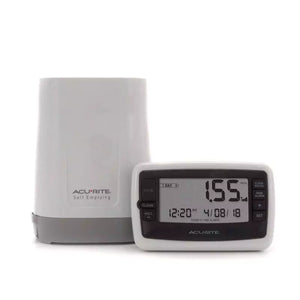
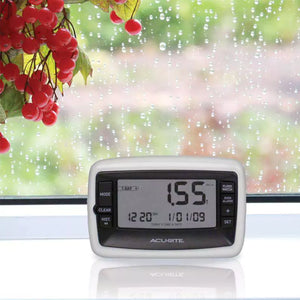 Vendor:Acurite
Vendor:AcuriteAcurite Digital Rain Gauge with Wireless Self-Emptying Rain Collector
Regular price $70.99Regular price$139.99-$69.00 Sale price $70.99 -
Sold out
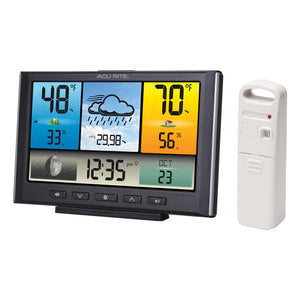
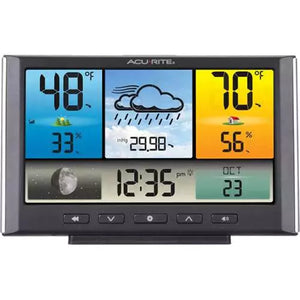 Vendor:AcuRite
Vendor:AcuRiteAcuRite Digital Weather Station with Clock and Color Display
Regular price $99.99Regular price$189.99-$90.00 Sale price $99.99 -
Sold out
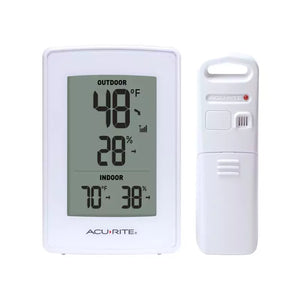
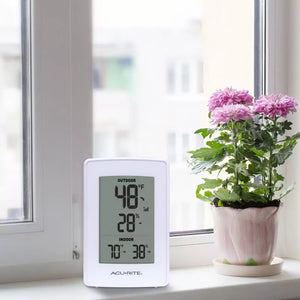 Vendor:AcuRite
Vendor:AcuRiteAcurite Indoor Outdoor Digital Thermometer and Humidity Gauge
Regular price $60.99Regular price$139.99-$79.00 Sale price $60.99 -
-$49.00
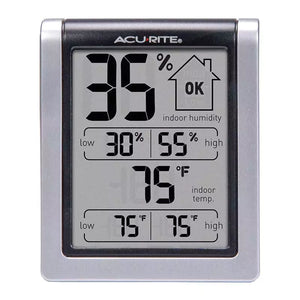
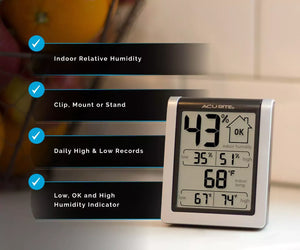 Vendor:Acurite
Vendor:AcuriteAcuRite Indoor Temperature and Humidity Monitor
Regular price $40.99Regular price$89.99-$49.00 Sale price $40.99 -
-$29.00
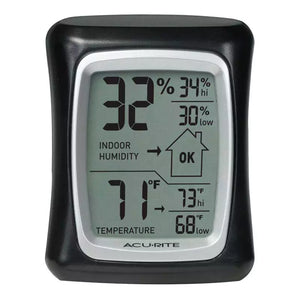
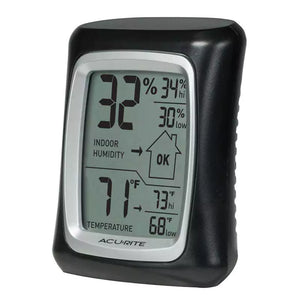 Vendor:Acurite
Vendor:AcuriteAcuRite Indoor Thermometer & Hygrometer with Temperature & Humidity Gauge
Regular price $30.99Regular price$59.99-$29.00 Sale price $30.99 -
-$98.00
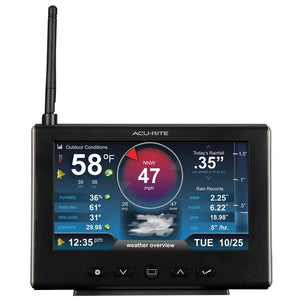
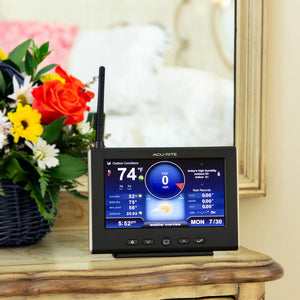 Vendor:AcuRite
Vendor:AcuRiteAcuRite Iris (5-in-1) High-Definition Display with Lightning Detection Option
Regular price $101.99Regular price$199.99-$98.00 Sale price $101.99 -
-$108.00
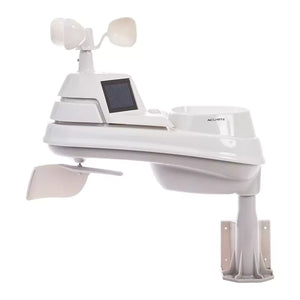
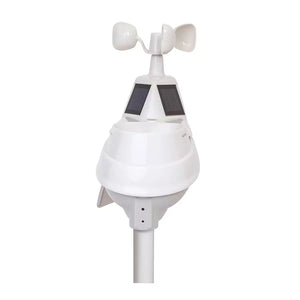 Vendor:AcuRite
Vendor:AcuRiteAcuRite Iris (5-in-1) Weather Sensor
Regular price $141.99Regular price$249.99-$108.00 Sale price $141.99 -
-$107.00
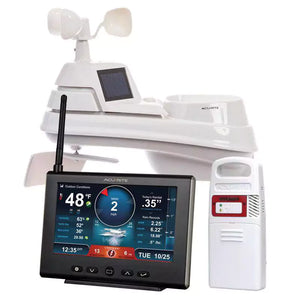
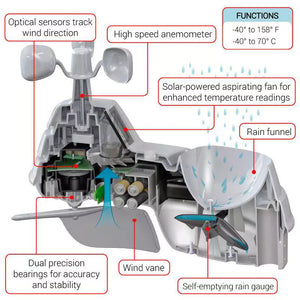 Vendor:AcuRite
Vendor:AcuRiteAcuRite Iris (5-in-1) Weather Station for Indoor/Outdoor Temp and Humidity, Wind Speed/Direction and Rainfall with Lightning Detection and Built-In Barometer
Regular price $262.99Regular price$369.99-$107.00 Sale price $262.99 -
-$78.00
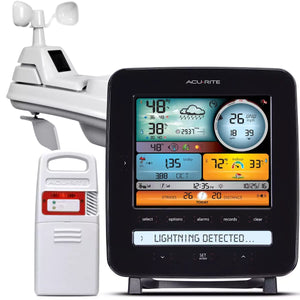
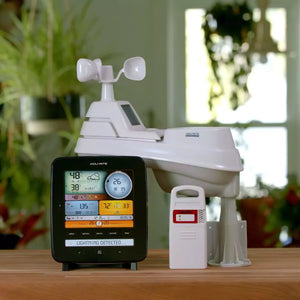 Vendor:AcuRite
Vendor:AcuRiteAcuRite Iris (5-in-1) Weather Station with Color Display & Lightning Detection
Regular price $181.99Regular price$259.99-$78.00 Sale price $181.99 -
-$65.00
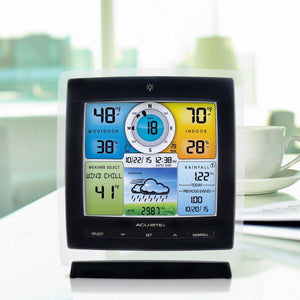
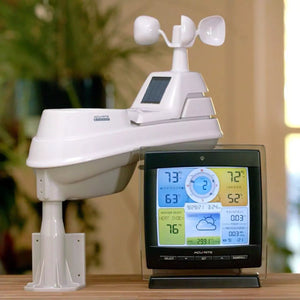 Vendor:Acurite
Vendor:AcuriteAcuRite Iris (5-in-1) Weather Station with Color Display for Indoor and Outdoor Temperature and Humidity, Wind & Rain with Built-In Barometer
Regular price $164.99Regular price$229.99-$65.00 Sale price $164.99 -
Sold out
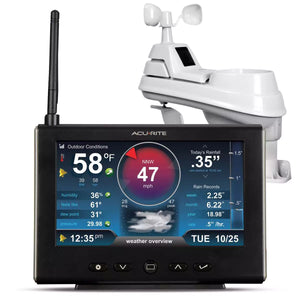
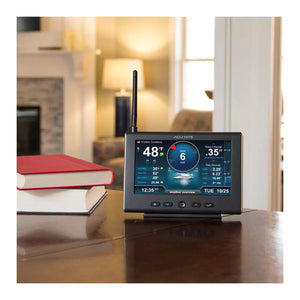 Vendor:AcuRite
Vendor:AcuRiteAcuRite Iris (5-in-1) Weather Station with HD Display
Regular price $199.99Regular price$239.99-$40.00 Sale price $199.99 -
-$118.00
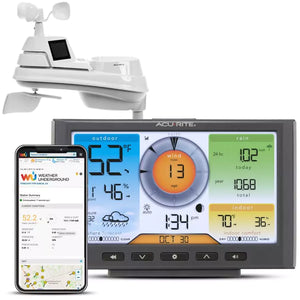
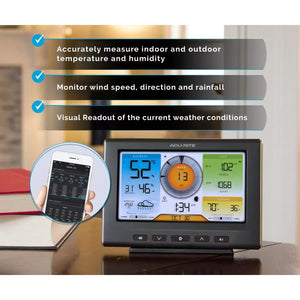 Vendor:AcuRite
Vendor:AcuRiteAcuRite Iris (5-in-1) Weather Station with Wi-Fi Connection to Weather Underground
Regular price $181.99Regular price$299.99-$118.00 Sale price $181.99 -
Sold out
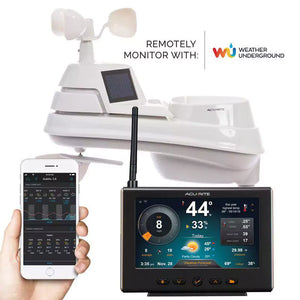
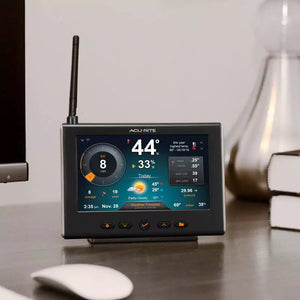 Vendor:AcuRite
Vendor:AcuRiteAcuRite Iris (5-in-1) Weather Station with Wi-Fi Connection to Weather Underground and Lightning Option
Regular price $199.99Regular price$299.99-$100.00 Sale price $199.99 -
-$98.00
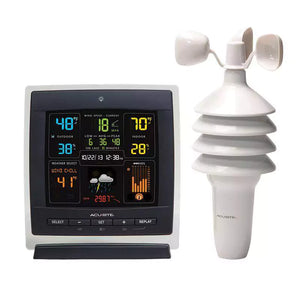
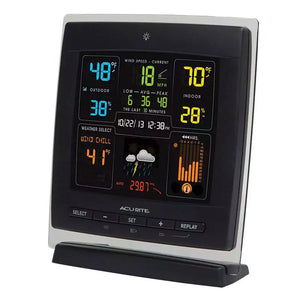 Vendor:AcuRite
Vendor:AcuRiteAcuRite Notos® (3-in-1) Weather Station with Reverse Color Display
Regular price $131.99Regular price$229.99-$98.00 Sale price $131.99 -
-$79.00
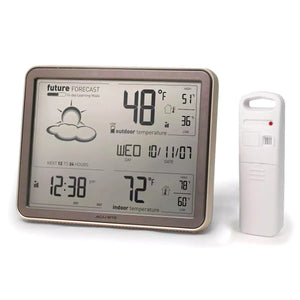
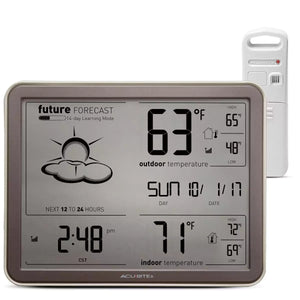 Vendor:AcuRite
Vendor:AcuRiteAcuRite Self-Learning Wireless Weather Forecast Station with Large Display
Regular price $80.99Regular price$159.99-$79.00 Sale price $80.99 -
Sold out
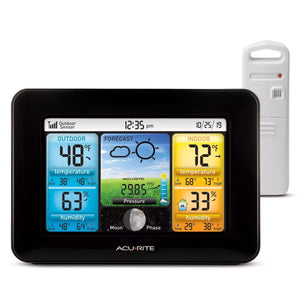
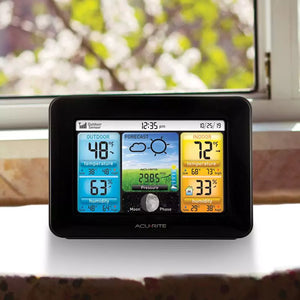 Vendor:AcuRite
Vendor:AcuRiteAcuRite Weather Forecaster with Indoor/Outdoor Temperature and Moon Phase
Regular price $81.99Regular price$169.99-$88.00 Sale price $81.99 -
-$78.00
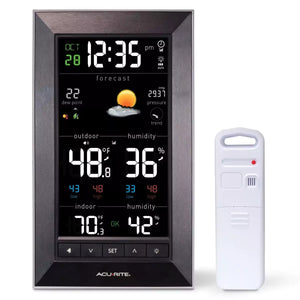
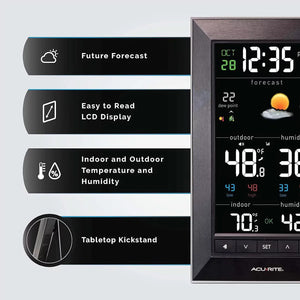 Vendor:AcuRite
Vendor:AcuRiteAcurite Weather Station with Indoor and Outdoor Monitoring
Regular price $81.99Regular price$159.99-$78.00 Sale price $81.99 -
-$80.00
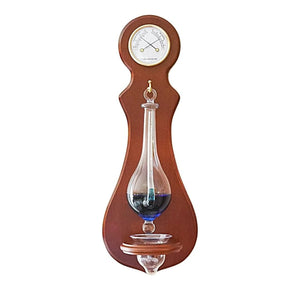
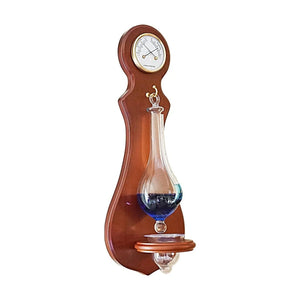 Vendor:Ambient Weather
Vendor:Ambient WeatherAmbient Weather BA212 Wall Mounted Weather Station with Thermometer, Hygrometer, and Barometer - Cherry Finish
Regular price $79.99Regular price$159.99-$80.00 Sale price $79.99 -
-$220.00
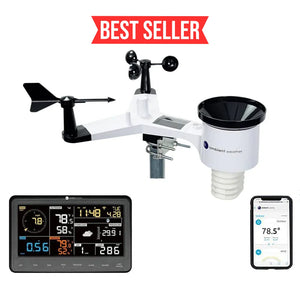
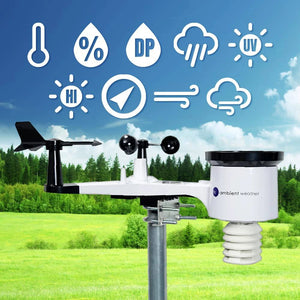 Vendor:Ambient Weather
Vendor:Ambient WeatherAmbient Weather WiFi Smart Weather Station WS-2902
Regular price $279.99Regular price$499.99-$220.00 Sale price $279.99 -
-$138.00
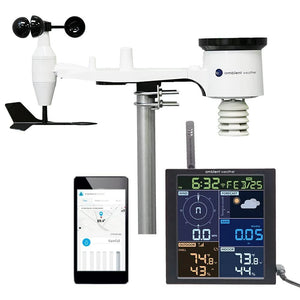
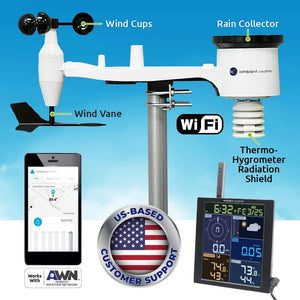 Vendor:Ambient Weather
Vendor:Ambient WeatherAmbient Weather WiFi Weather Station w/Remote Monitoring & Ambient Weather Network Access - WS-1965
Regular price $191.99Regular price$329.99-$138.00 Sale price $191.99 -
-$200.00
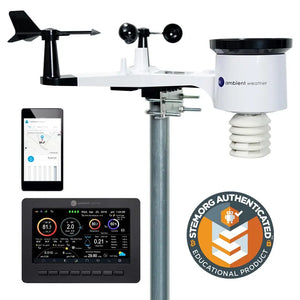
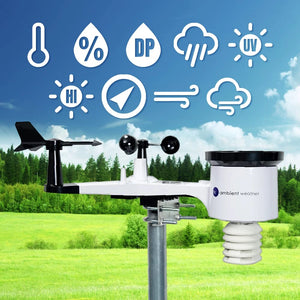 Vendor:Ambient Weather
Vendor:Ambient WeatherAmbient Weather WS-2000 Home Weather Station with Wi-Fi Remote Monitoring and Alerts
Regular price $349.99Regular price$549.99-$200.00 Sale price $349.99 -
-$260.00
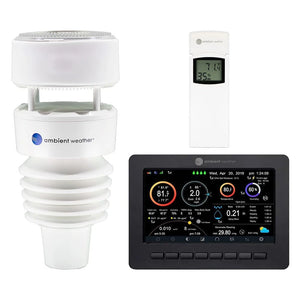
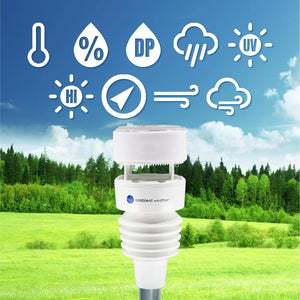 Vendor:Ambient Weather
Vendor:Ambient WeatherAmbient Weather WS-4000 Solar Powered UltraSonic Wi-Fi Weather Station
Regular price $439.99Regular price$699.99-$260.00 Sale price $439.99 -
-$300.00
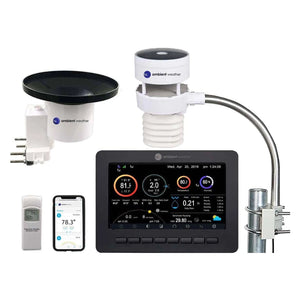
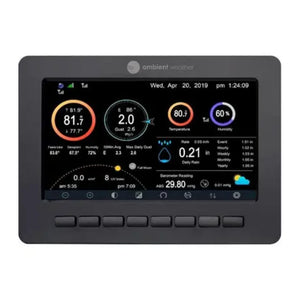 Vendor:Ambient
Vendor:AmbientAmbient Weather WS-5000 Ultrasonic Professional Weather Station
Regular price $549.99Regular price$849.99-$300.00 Sale price $549.99 -
-$80.00
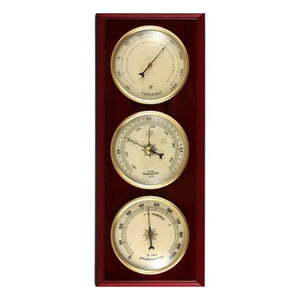
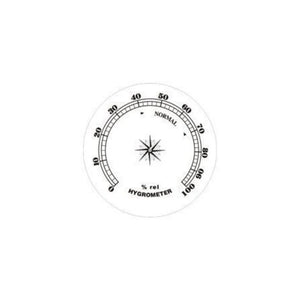 Vendor:Ambient
Vendor:AmbientAmbient Weather YG315 Cherry Finish Dial Traditional Weather Station
Regular price $79.99Regular price$159.99-$80.00 Sale price $79.99 -
-$20.00
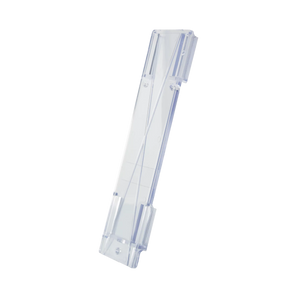 Vendor:Product Alternatives
Vendor:Product AlternativesBack Plate - Productive Alternatives
Regular price $24.99Regular price$44.99-$20.00 Sale price $24.99 -
Sold out
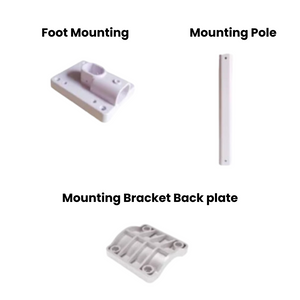
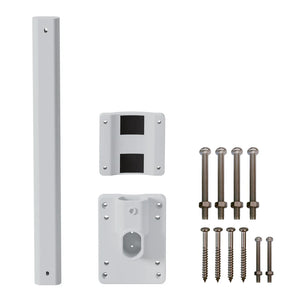 Vendor:Sainlogic
Vendor:SainlogicBase and Bracket for Sainlogic Weather Station
Regular price $49.99Regular price$89.99-$40.00 Sale price $49.99









































































